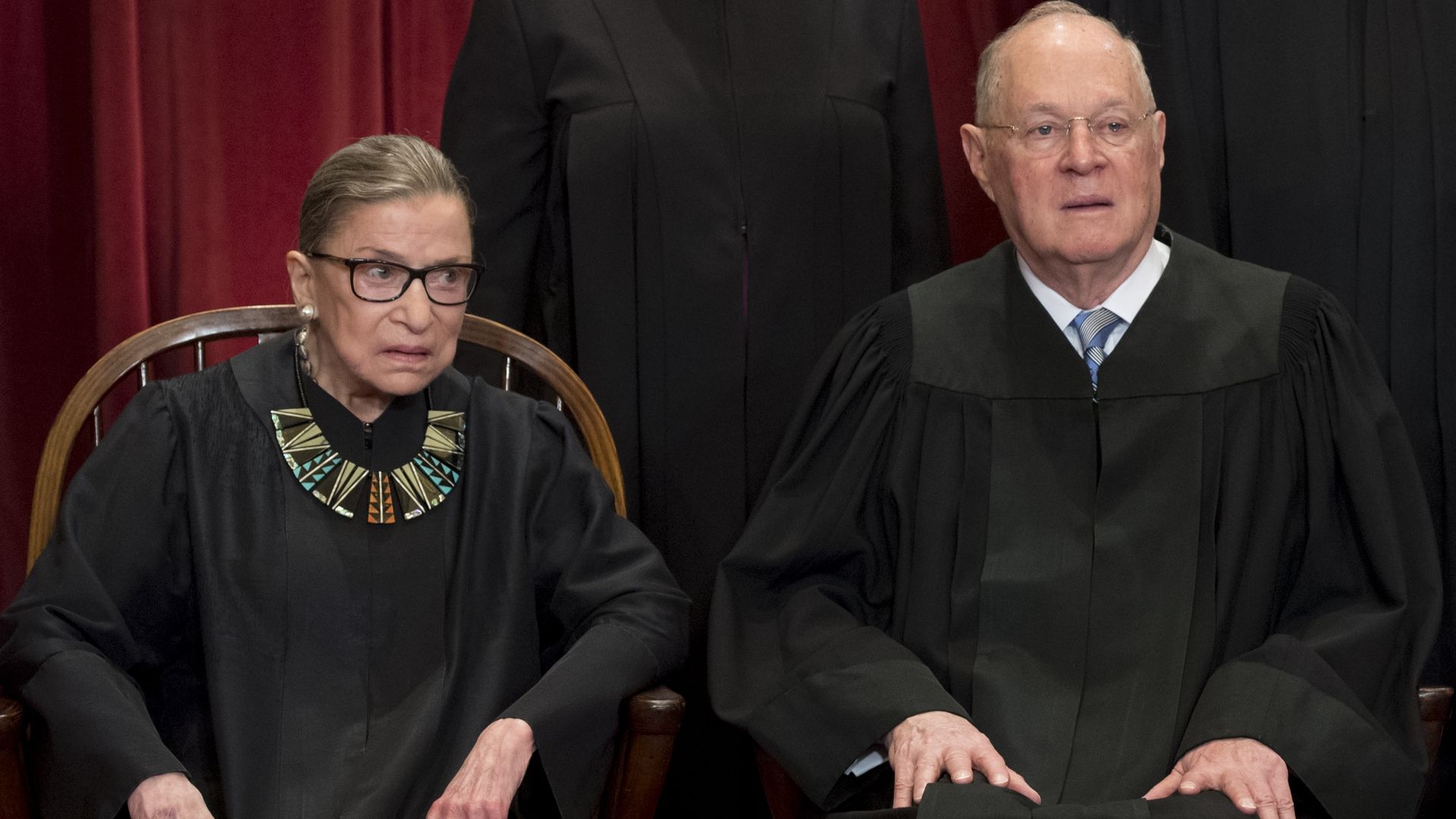Go deeper: How SCOTUS could start rolling back abortion rights
Add Axios as your preferred source to
see more of our stories on Google.

Justices Ruth Bader Ginsburg and Anthony Kennedy. Photo: Saul Loeb/AFP/Getty Images
Pro-life activists and lawmakers have already laid the groundwork for overturning the federal abortion protection through state laws and court cases that are likely to end up before the Supreme Court.
Why it matters: If and when the post-Kennedy court decides to re-examine Roe v. Wade, there's a lot of nuanced ways that could go, but it'd likely result in states having more power to determine their own abortion laws.
The big picture: The court is unlikely to overturn Roe right away. Here's how it would go instead, and why it might take a while:
- Abortion cases get to the Supreme Court via challenges to state laws that restrict access to abortion. A bunch of those cases are already in progress.
- Groups like Planned Parenthood may be less likely to appeal certain rulings, or challenge certain laws, if they're afraid that getting all the way to SCOTUS could backfire.
- But abortion has been a mainstay on the court's docket for a long time; some of these cases are going to get there. And if it gives states more leeway than they've had before, they'll look at those rulings and see how much further they think they can go.
- And then that repeats itself over and over. Planned Parenthood is obviously worried it will go on until abortion is a right in name only. If it does go that far, that's when you could start to see Roe itself called into question — probably only after it's been narrowed down significantly.
Between the lines: State abortion laws — mostly in southern states — that are currently being challenged (or highly like to be challenged soon) include:
- Laws banning abortions based on the sex, race or disability of the fetus.
- Bans on "dilation and evacuation" abortions, which are commonly performed in the second trimester.
- Laws banning abortions after a certain amount of time, like Iowa's new law prohibiting abortions after six weeks of pregnancy.
The bottom line: If Roe is weakened or overturned, states would then have a lot more power. Currently, there's a lot of variety when it comes to state law.
- The Guttmacher Institute has a great rundown of what state policies come into play in the absence of Roe.
- The fight over abortion would inevitably shift to the states, which would feel much more pressure to legislate on the issue.

